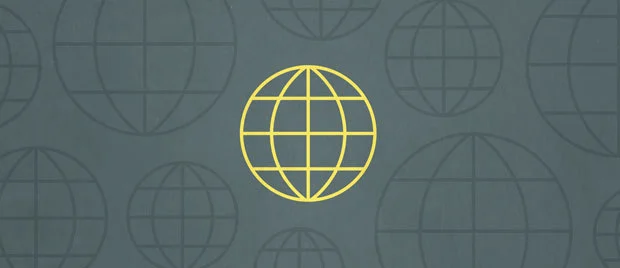How Will We Live Now?

The year 1976 continues to reverberate throughout evangelical Christianity. The towering giants of the evangelical world at that time seemed to see our world in increasingly hopeful terms. The urgent cultural crises of the 1960s appeared to be in recession.
As we now know, it was not really so. In 1973, the Supreme Court handed down the Roe v. Wade decision, legalizing abortion on demand nationwide. Larger intellectual currents were setting the stage for a massive shift in the culture. Evangelicals were wearing “I Found It” buttons and building massive megachurches, but the culture was shifting toward a hostile secularism that would not be fully apparent for a generation.
Still, some saw it coming. I turned 17 in 1976 and was facing my last year of high school and trying to figure out the world around me. An apologetic crisis had troubled me for a couple of years by then, and I needed help. I was already facing some of the issues and questions that would soon explode onto the American scene.
Thankfully, I did get help, and from multiple sources. D. James Kennedy introduced me to the writings of Francis Schaeffer. At that point, I had not met Schaeffer, but his writings were a form of theological rescue for me. They gave me a way of understanding how the Christian faith related to and answered the questions of the world around me.
In 1976, Schaeffer released How Should We Then Live? The Rise and Decline of Western Thought and Culture, and I bought one of the first copies. I read it from cover to cover with intensity, knowing that Schaeffer was telling the story of Western civilization.
How Should We Then Live? was both a book and a multi-episode video project, just like Lord Kenneth Clark’s Civilisation, a 1969 series on the history of Western society told from a humanistic perspective. This was not a coincidence. Schaeffer was deliberately answering Clark and telling a very different story. The subtitle of the book made that clear—The Rise and Decline of Western Thought and Culture. That was virtually the opposite of Lord Clark’s story. Schaeffer did not disagree with every argument of Clark’s Civilisation, but he did disagree with many of Clark’s arguments and, more importantly, with Clark’s humanistic interpretation of the main story.
Francis and his wife, Edith, founded and directed L’Abri Fellowship, a ministry in the Swiss mountains, drawing disaffected and confused young people from around
the world, presenting them with the gospel of Christ, and answering their questions with a rational and demonstrative apologetic for biblical Christianity. While other leaders were building the evangelical empire, the Schaeffers took in scores of long-haired and intellectually agitated young people, engaging their minds and interpreting the culture.
I read How Should We Then Live? straight through, but the book troubled me. Who was right about the main story of Western civilization, Schaeffer or Clark? I wasn’t sure when I first read the book. Lord Clark pointed to the continual rise of the culture over centuries, right down to the present. Schaeffer saw modern culture as overwhelmingly opposed to God and disintegrating, cut off from any ability to make transcendent judgments or truth claims. He saw the looming humanism as a direct challenge to Christianity. I realized then that Lord Clark believed the same, and yet he saw the new humanism as a liberation from ancient but persistent religious beliefs. To my chagrin, I had not realized the presuppositions behind Clark’s story of civilization.
The collision between Clark and Schaeffer introduced me to the great collision of worldviews that became such a central interest and urgency of my life. On the one hand, I felt embarrassed that I had not recognized the problems with Lord Clark’s storyline. On the other hand, I knew that I desperately wanted to understand the intersection of ideas, morality, art, culture, architecture, music, science, philosophy, and biblical Christianity.
Years before words such as worldviews and truth claims entered the common evangelical vocabulary, Schaeffer was introducing the terms and stressing their importance. He knew that the great conflict of world-views was under way, and he cared deeply about a generation of young people who were even then deciding between Christianity and intellectual revolution.
Schaeffer was absolutely right when he began How Should We Then Live? with these words: “There is a flow to history and culture.” Yes, there is such a flow, and Christians had better know which way the culture is flowing.
“People have presuppositions, and they will live more consistently on the basis of those presuppositions than even they themselves may realize,” Schaeffer wrote, and he was talking this way when most evangelicals were unaware of the storm of worldviews that was coming. He perceived the presuppositions of the looming humanistic and secular worldview as showing up first in art and high culture. He was right. While most evangelicals were watching Gunsmoke and taking their kids to the newly opened Walt Disney World, Schaeffer was listening and watching as a new worldview was taking hold of the larger culture.
He was also right that the greatest threats to evangelical faithfulness were the promises of personal peace and affluence. He was prophetic in criticizing the Christian church for a legacy of racism and the abuse of economic abundance. He was right when he looked to developments such as Roe v. Wade and knew that something seismic had shifted in the culture, and that bigger shocks were yet to come.
He was also asking precisely the right question: How should we then live? That question that troubled Schaeffer so much in 1976 troubles all of us now. We are about to find out if professing Christians in this generation are going to believe and to live authentic biblical Christianity.


